Understanding the Power of Emotional Intelligence in Stress Management
Emotional intelligence (EI) encompasses the ability to recognize, understand, and manage one’s own emotions while empathizing with others. As stress becomes an increasingly prevalent challenge across educational, professional, and personal settings, developing EI offers a promising pathway to resilience. This article explores the multifaceted role of EI in managing stress effectively, highlighting how enhancing these skills can lead to healthier, more balanced lives.
Foundations of Emotional Intelligence and Its Components
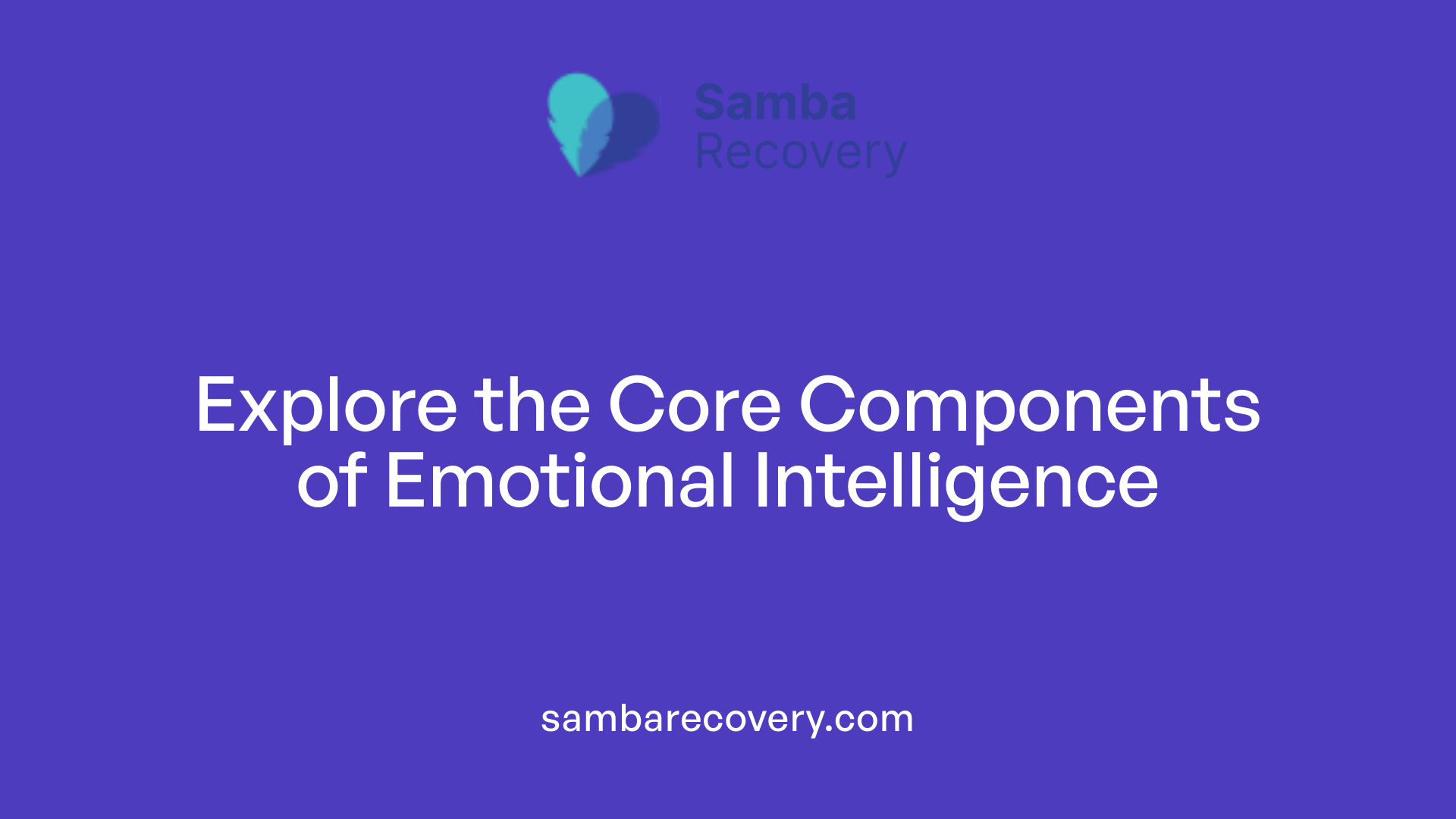
What is emotional intelligence?
Emotional intelligence (EI) is the ability to recognize and understand emotions in oneself and others, and to use this awareness to manage behavior and relationships effectively. People with high EI can interpret emotional cues, respond appropriately, and foster positive interactions.
What are the key components of emotional intelligence?
The main elements of EI include:
| Component | Description | Practical Example |
|---|---|---|
| Self-awareness | Recognizing and understanding your own emotions and their effect on your thoughts and actions. | Noticing feelings of anger and choosing to calm down before responding. |
| Self-regulation | Managing your emotions and impulses, maintaining control during stressful moments. | Practicing mindfulness or taking breaks when feeling overwhelmed. |
| Motivation | Being driven by a purpose, maintaining optimism, and seeking inspiration. | Staying focused on goals despite obstacles, and sharing positivity with others. |
| Empathy | Understanding and sharing the feelings of others, recognizing their emotional states. | Listening actively and responding compassionately to friends or colleagues. |
| Social skills | Effectively communicating, resolving conflicts, and building relationships. | Leading team discussions or offering support during challenging times. |
How does emotional intelligence help in managing stress?
People who develop their EI tend to adopt better coping strategies, such as problem-solving, emotional regulation, and seeking social support. These skills contribute to lower stress levels, higher resilience, and improved mental health. Developing components like self-awareness and empathy enables individuals to recognize early signs of stress and address them proactively.
Training programs focusing on enhancing these aspects have shown promising results in reducing stress and preventing burnout.
| Aspect of EI | Role in Stress Management | Supporting Observation |
|---|---|---|
| Self-awareness | Recognizing emotional triggers early. | Early detection prevents escalation of stress symptoms. |
| Self-regulation | Controlling emotional reactions through techniques like mindfulness. | Maintains emotional balance during high-pressure situations. |
| Motivation | Maintaining a positive outlook and resilience. | Encourages persistence and hope. |
| Empathy | Understanding others’ stress, fostering support. | Builds stronger social networks for emotional backing. |
| Social skills | Effective communication and conflict resolution. | Reduces misunderstandings that can elevate stress. |
Overall, strengthening EI skills enables individuals to better handle stressful events, build supportive relationships, and enhance their overall well-being in both academic and professional settings.
The Relationship Between Emotional Intelligence and Stress Perception
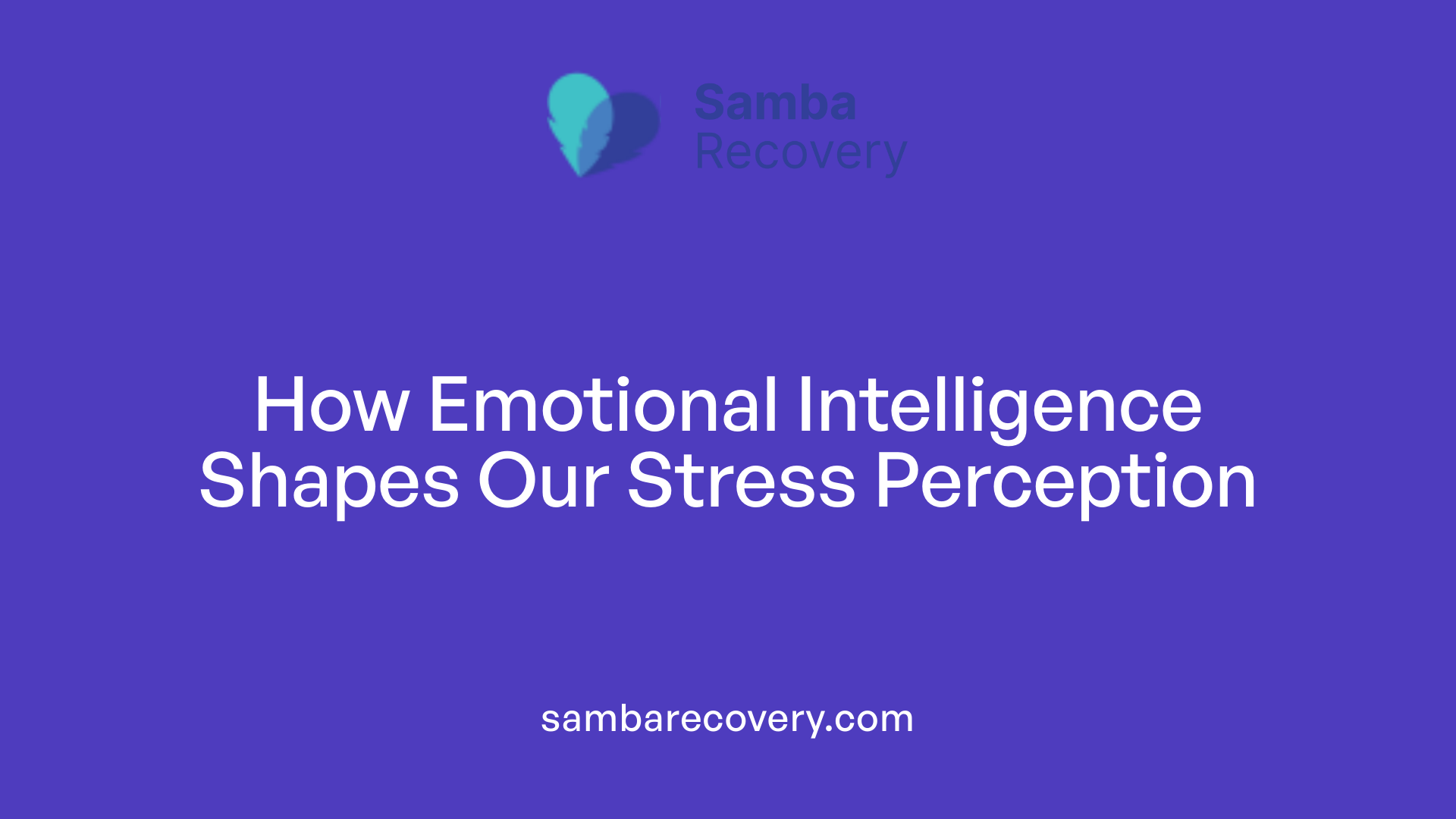
How EI influences stress perception
Emotional intelligence (EI) plays a significant role in how individuals perceive and handle stress. Those with high EI can recognize their own emotional states and understand the emotions of others, which allows them to interpret stressful situations more accurately. This awareness helps in selecting appropriate coping strategies rather than reacting impulsively.
People with strong EI tend to evaluate their environment more positively and avoid catastrophizing, which reduces perceived stress levels. They are better at managing emotional reactions such as anger, anxiety, and agitation, preventing these from escalating into feelings of helplessness or depression.
The impact of EI on stress-related health and mental well-being
Higher EI is linked to improved mental health and resilience against stress-related health problems. Individuals with elevated EI report better moods, less anxiety, and fewer physical signs of stress, such as increased heart rate or hormonal changes. They often build stronger social networks, gaining emotional support that aids stress recovery.
Research shows that emotional intelligence can decrease the risk of burnout and depression by fostering effective emotion regulation, problem-solving, and social skills. Training in EI has been found to improve stress coping mechanisms significantly, with benefits that last or even grow over time.
What is the relationship between emotional intelligence and stress management?
High emotional intelligence is associated with better stress management, as it enables individuals to understand and regulate their emotions, leading to less perceived stress and more effective coping strategies.
How does EI influence stress perception and coping strategies?
A high level of emotional intelligence can predict healthy functioning and reduce the perception of stress, as individuals with strong EI experience less stress at work and are better equipped to cope with stressors.
| Aspect | Effect of Emotional Intelligence | Additional Details |
|---|---|---|
| Stress perception | Lower perceived stress; positive evaluation | EI helps interpret stressors as manageable or controllable |
| Health and mental well-being | Better mood; reduced anxiety; fewer physical stress signs | EI associated with resilience to burnout and depression |
| Coping strategies | Preference for adaptive, problem-focused coping | Techniques include emotion regulation, social support-seeking |
| Workplace impact | Less job stress; improved performance | EI explains a small but significant portion of stress variance (about 7%) |
Developing emotional intelligence through training programs can enhance stress management skills, leading to better health and mental well-being. Recognizing how emotions influence perception allows for proactive stress reduction, fostering a healthier, more resilient mindset.
Empirical Evidence of EI’s Role in Stress Reduction in Educational Settings
Numerous studies have explored the relationship between emotional intelligence (EI) and stress management among students. The findings consistently demonstrate that students who possess higher levels of EI are better equipped to cope with academic and social stressors.
Research shows a positive link between emotional intelligence components like motivation and empathy with effective stress coping strategies. For example, students exhibit a strong preference for active problem-solving and emotional regulation when they have developed their EI skills.
Developing EI in students can be facilitated through various practices. Increasing self-awareness through activities like journaling and reflection helps individuals recognize emotional triggers early. Employing self-regulation techniques such as mindfulness, deep breathing, and relaxation exercises enhances their ability to maintain emotional balance.
Enhancing motivation and empathy involves setting personal goals, adopting perspectives, and engaging in active listening. These skills enable students to build supportive relationships and better understand their own and others’ emotional states.
In addition, social skills training, including role-playing and group collaboration, equips students with the ability to communicate effectively, resolve conflicts, and foster teamwork. Integrating these methods into regular educational routines can significantly bolster students’ resilience and reduce stress.
Supporting evidence comes from multiple studies, which suggest that training aimed at improving emotional intelligence not only increases students’ capacity for stress management but also promotes overall mental well-being. Consequently, educators are encouraged to incorporate EI development into their curricula.
In summary, the link between emotional intelligence and effective stress coping is well-supported. Encouraging students to develop their EI through targeted practices holds promise for better academic performance, improved mental health, and enhanced resilience against stress-related challenges.
Impact of Emotional Intelligence on Mental and Physical Stress Symptoms
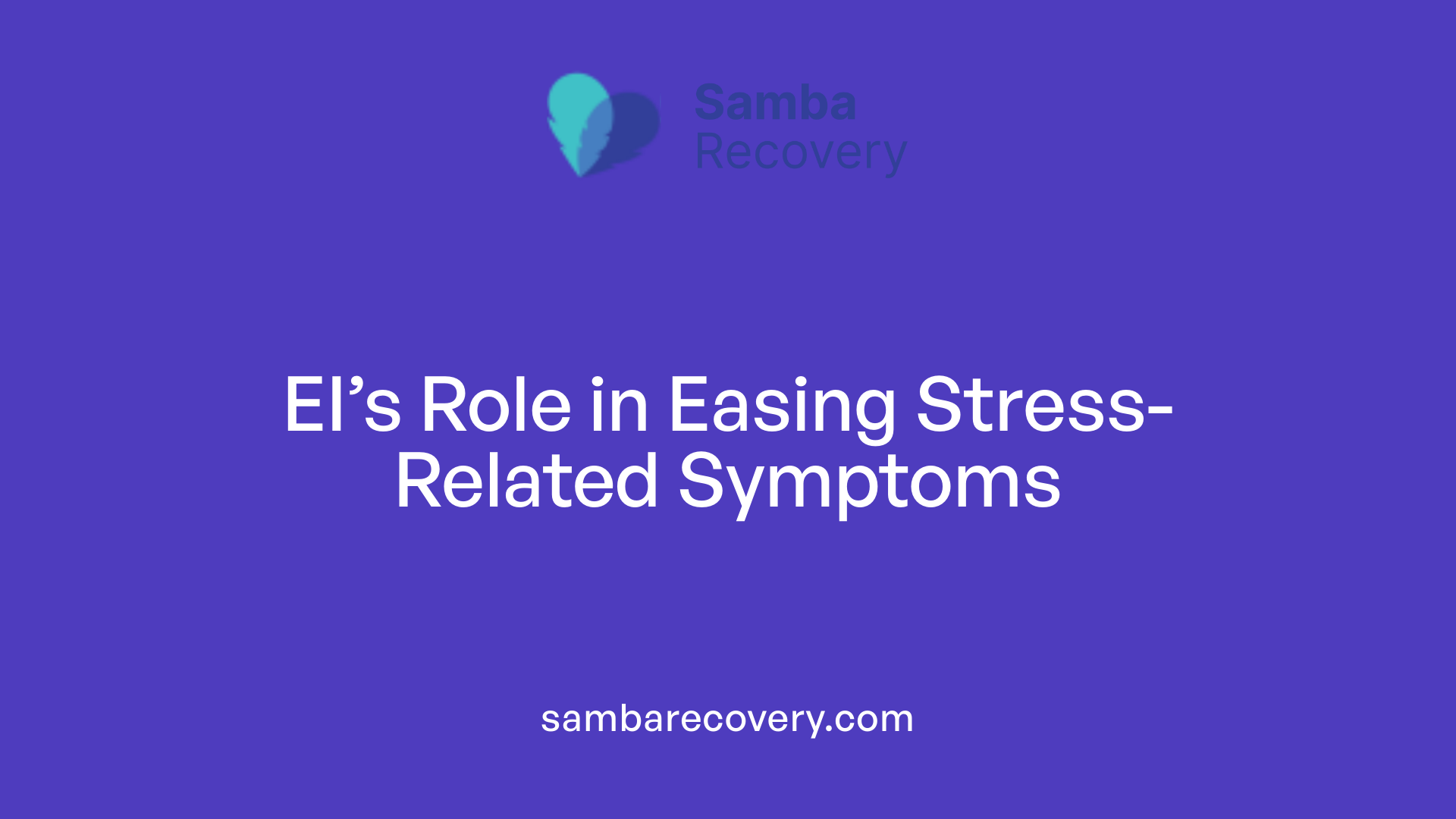
What are the benefits of developing emotional intelligence for managing stress and resilience?
Developing emotional intelligence (EI) significantly improves how individuals handle stress and build resilience. When people enhance their EI, they become better at recognizing, understanding, and managing their own emotions and those of others. This skill allows for more effective stress management and helps prevent feelings of overwhelm.
Higher EI contributes to emotional flexibility, boosting self-efficacy and fostering empathy. These qualities enable individuals to adapt more easily to adversity, recover faster from setbacks, and maintain a positive outlook even in challenging circumstances. Additionally, EI facilitates better social connections and communication, reducing feelings of isolation and providing crucial emotional support.
Practicing EI techniques—such as self-awareness, self-regulation, and empathy—can also lead to healthier coping strategies, including problem-solving, relaxation, and seeking social support. Overall, developing emotional intelligence equips individuals with the tools necessary to manage stress proactively, support mental well-being, and develop resilience over time.
How does high EI impact physical and mental stress symptoms?
People with elevated emotional intelligence tend to experience fewer physical and mental symptoms of stress. They often report feeling calmer and more in control during stressful situations, which correlates with fewer physiological reactions like sweaty palms, increased heart rate, and hormonal fluctuations.
High EI individuals evaluate their environment from a more positive perspective, intentionally seeking constructive interpretations rather than catastrophizing. This attitude results in reduced feelings of anxiety and worry during stress, lowering the likelihood of experiencing physical symptoms like tension headaches, fatigue, or gastrointestinal discomfort.
Moreover, those with high EI are more aware of their emotional responses and can employ strategies such as mindfulness and emotional regulation to mitigate the impact of stress. These practices contribute to better overall mental health, including lower levels of anxiety and depression, and support physical health by diminishing adverse bodily reactions associated with stress.
Training and Strategies to Enhance Emotional Intelligence
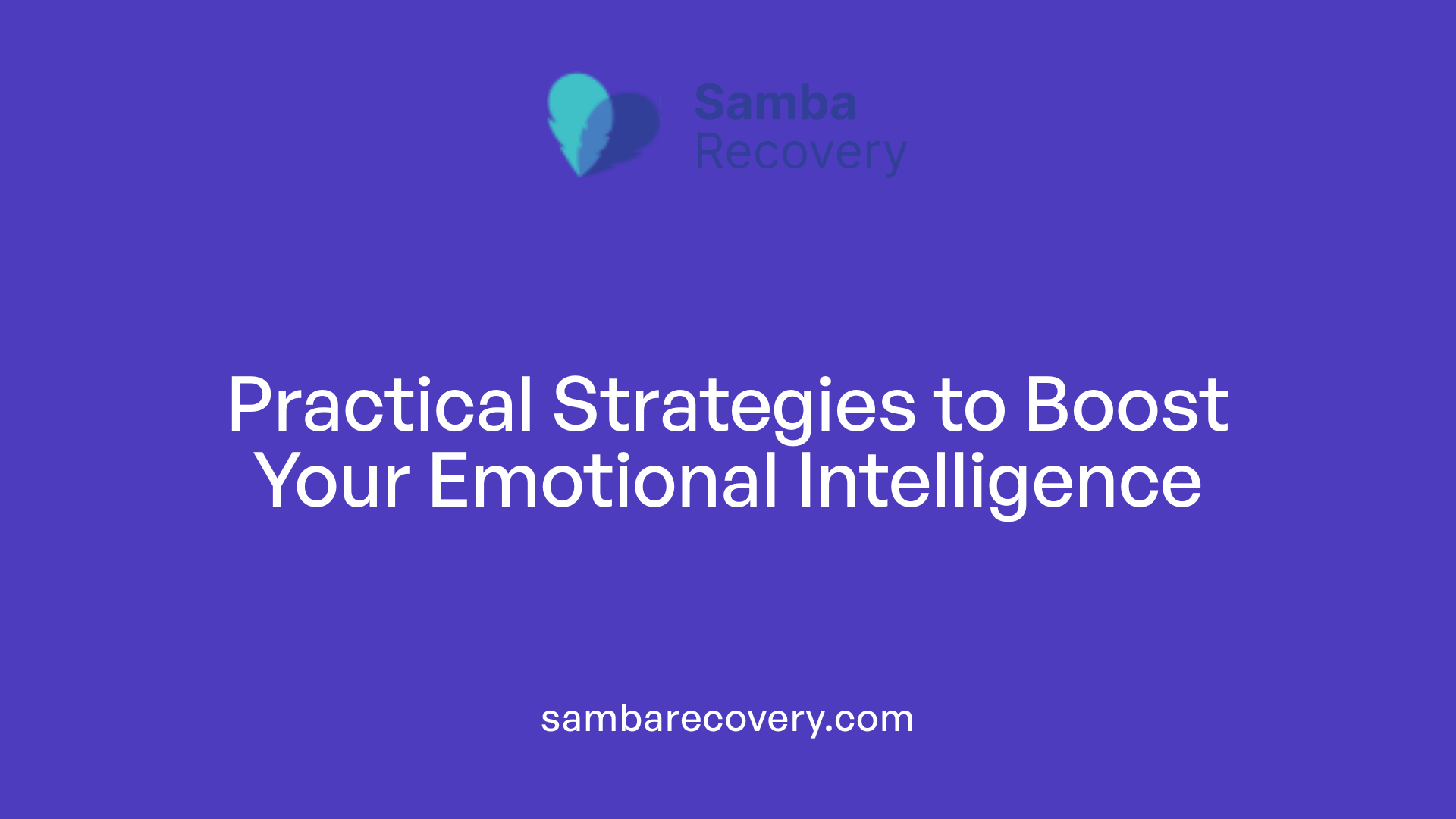
Building emotional intelligence (EI) is essential for effective stress management across various settings like education, workplaces, and personal relationships. Several practical methods can help individuals develop these vital skills. For example, journaling and regular self-reflection enhance self-awareness by encouraging individuals to recognize and understand their emotional patterns, which is the first step toward regulating reactions to stress.
Self-regulation can be improved through relaxation techniques such as mindfulness meditation, deep breathing exercises, and anger management strategies. These practices help maintain emotional balance during challenging situations.
Boosting motivation and empathy involves setting clear personal goals and engaging in activities that promote perspective-taking. Active listening during conversations enables individuals to better understand others’ emotions, fostering empathy and stronger social bonds.
Developing social skills is also crucial. Role-playing scenarios, participating in group discussions, and collaborative tasks help improve communication, conflict resolution, and teamwork—skills that are essential in managing stress effectively.
Training methods such as seeking 360-degree feedback and practicing active listening can provide insights into one’s emotional responses and social interactions. Additionally, mindfulness practices, reframing negative thoughts, and paying attention to emotional cues contribute to higher EI.
Incorporating these strategies into daily routines—whether at work, school, or in personal life—can significantly enhance emotional intelligence. This, in turn, helps individuals handle stress better, build supportive relationships, and foster resilience in the face of adversity.
Implications for Workplace and Academic Settings
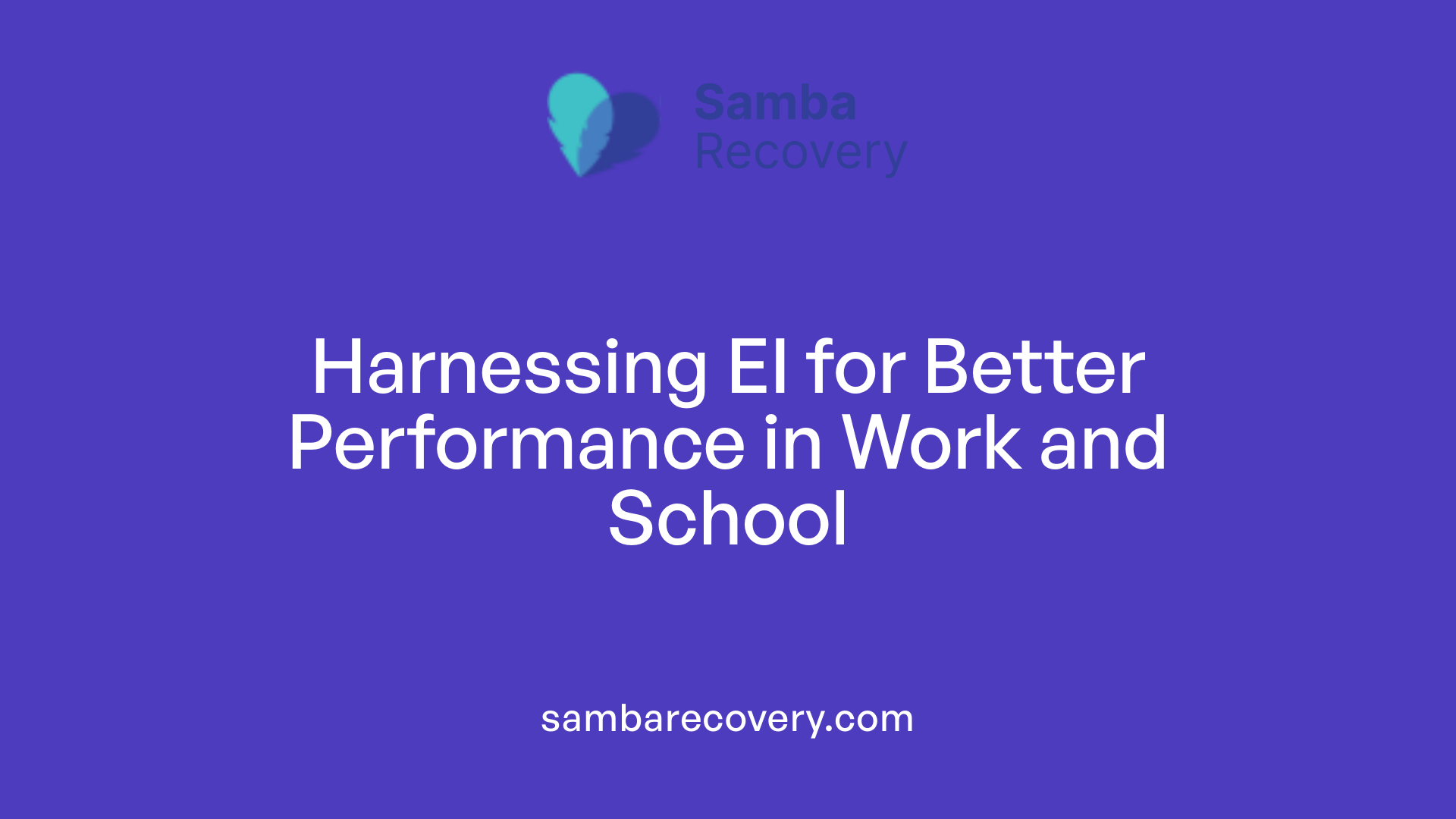
What is the role of emotional intelligence in managing stress in workplace and leadership contexts?
In organizational environments, emotional intelligence serves as a vital tool for reducing stress and promoting a healthy work atmosphere. Leaders with high EI excel at improving communication, fostering teamwork, and providing emotional support, which collectively ease workplace tensions. They are adept at conflict resolution, understanding colleagues’ needs, and creating an environment where individuals feel valued and understood. These skills help buffer against stress by maintaining positive relationships and ensuring clear, empathetic communication.
Research shows that emotionally intelligent leaders can influence organizational climate positively. They encourage open dialogue, promote collaboration, and support employees during challenging times, ultimately leading to lower levels of work-related stress. Additionally, EI contributes to better work-life balance, as leaders who understand emotional cues are more able to recognize when team members are overwhelmed and take steps to mitigate workload pressures.
How can developing EI benefit academic environments and teachers?
In educational settings, developing emotional intelligence is especially beneficial for both students and teachers. For students, EI helps equip them with effective stress management skills, enabling better emotional regulation, resilience, and social interaction. Recognizing the connection between mood and emotions encourages students to communicate their feelings more effectively and seek support when needed.
For teachers, enhancing EI leads to improved classroom management, reduced burnout, and a more positive learning environment. Teachers with high EI can better understand student needs, handle conflicts calmly, and foster supportive relationships. This creates a more engaging educational experience and contributes to teachers’ well-being.
Overall, fostering EI in schools and workplaces nurtures environments where stress is managed more efficiently, relationships are strengthened, and productivity is enhanced. Implementing EI training programs—featuring mindfulness, emotional awareness exercises, and social skills development—can drive these positive outcomes.
| Application Area | Benefits | Strategies for Development |
|---|---|---|
| Workplace Leadership | Reduce stress, improve team dynamics, foster empathy | Emotional intelligence training, active listening workshops, conflict resolution exercises |
| Academic Environment | Better stress management, improved classroom atmosphere | Mindfulness practices, emotional awareness activities, social skills training |
| Overall Organizational Health | Enhanced well-being, higher performance, lower burnout | Continuous EI development programs, coaching, peer feedback |
Conclusion: Cultivating Emotional Intelligence for a Healthier, Less Stressful Life
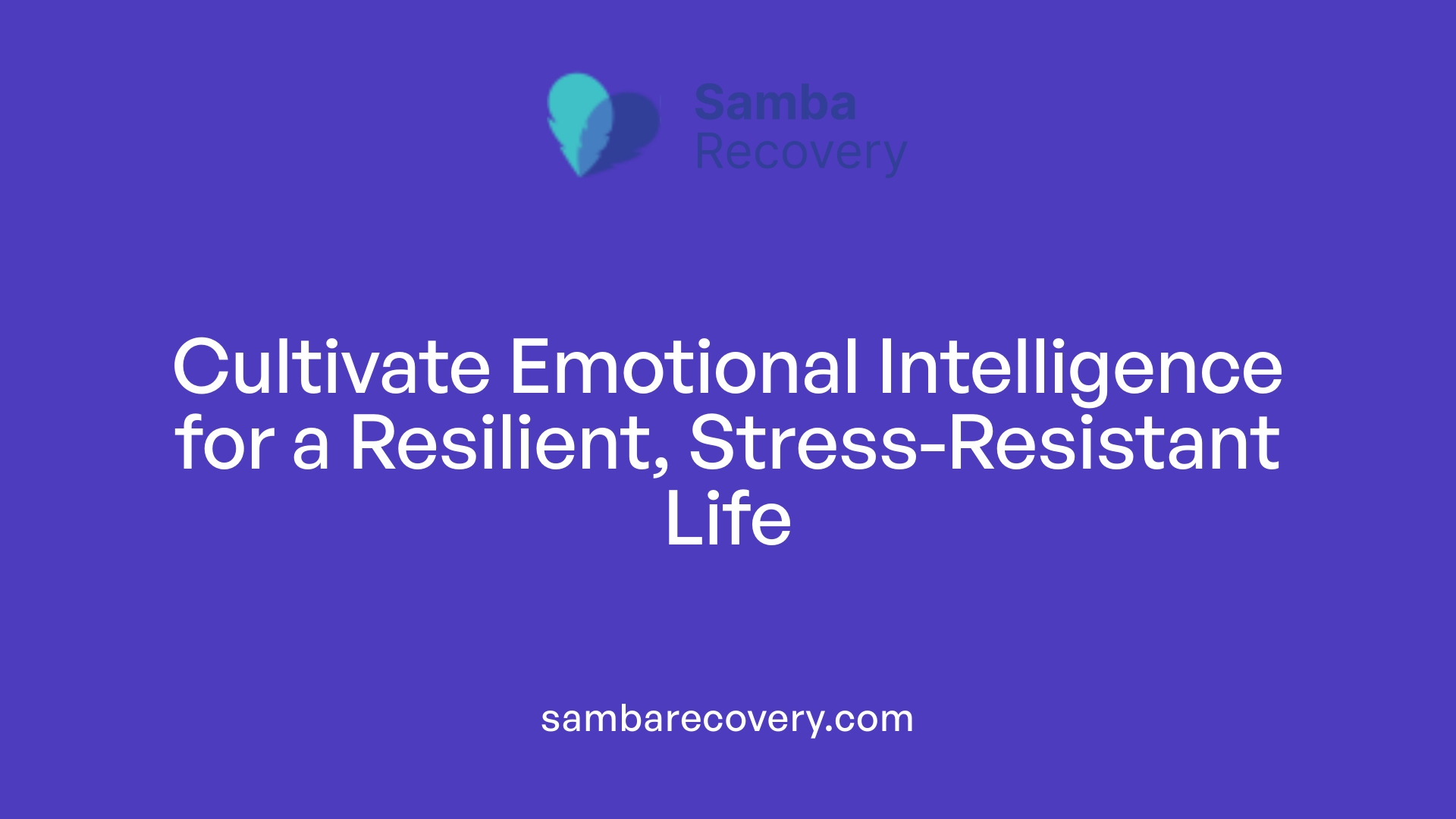
What are the benefits of developing emotional intelligence for managing stress and resilience?
Developing emotional intelligence (EI) offers numerous advantages in managing stress and building resilience. By enhancing skills such as self-awareness and self-regulation, individuals can recognize their emotional triggers early and employ strategies like emotional regulation, mindfulness, and cognitive reframing to cope with stress more effectively.
High EI also boosts resilience by fostering emotional flexibility, confidence, and empathy. These qualities help individuals recover quickly from adversity and maintain a positive outlook, even during challenging times. Furthermore, EI improves social skills, enabling better communication and stronger relationships, which provide essential emotional support during stressful periods.
Research shows that emotionally intelligent people experience less anxiety, worry, and physical signs of stress like rapid heartbeat or sweating. They tend to choose problem-focused coping strategies, actively addressing issues instead of avoiding them, further reducing stress levels.
Overall, cultivating emotional intelligence not only equips individuals to handle stress better but also enhances their overall well-being, personal growth, and capacity to foster supportive environments at work, school, and home.
Call to Action for Developing EI
To enjoy these benefits, individuals are encouraged to actively develop their EI skills. Engaging in practices such as mindfulness, journaling, seeking feedback, active listening, and relationship building can significantly improve emotional awareness and regulation. Education institutions and workplaces should also consider integrating EI training programs, emphasizing the importance of emotional skills for health and success.
By making a conscious effort to enhance emotional intelligence, everyone can lead a healthier, less stressful life while strengthening relationships and fostering resilience against life’s inevitable challenges.
Building a Resilient Future through Emotional Intelligence
In sum, emotional intelligence serves as a vital resource for managing stress across all areas of life. By intentionally developing skills such as self-awareness, self-regulation, motivation, empathy, and social skills, individuals can build resilience, enhance their mental health, and foster positive relationships. As research continues to uncover the profound impact of EI, it becomes clear that investing in emotional skills development is essential for creating healthier, more supportive environments—personally, professionally, and academically. Embracing this journey toward emotional growth can lead to a more balanced, less stressful existence—good for individuals and the communities they belong to.
References
- Emotional intelligence and its relationship with stress …
- Emotional Intelligence: The Secret to Managing Stress
- Squashing Stress with Emotional Intelligence
- Emotional Intelligence in Leadership: Why It’s Important
- Improving Emotional Intelligence (EQ): Expert Guide
- The relationship between emotional intelligence and stress …
- The role of emotional intelligence and self-care in …
- Role Of Emotional Intelligence In Stress Management






